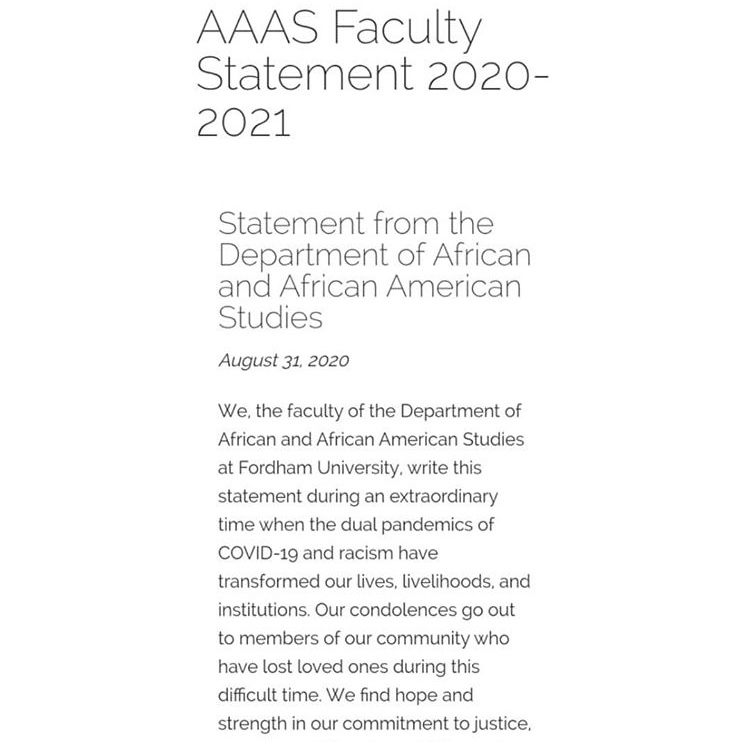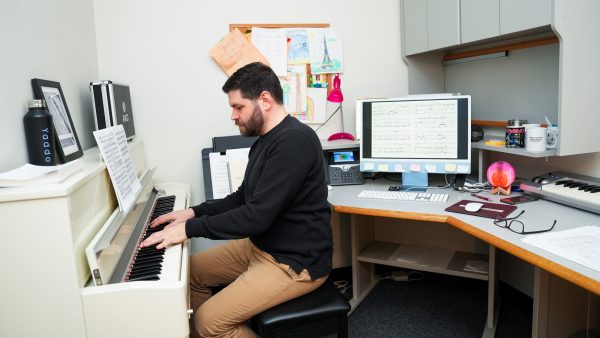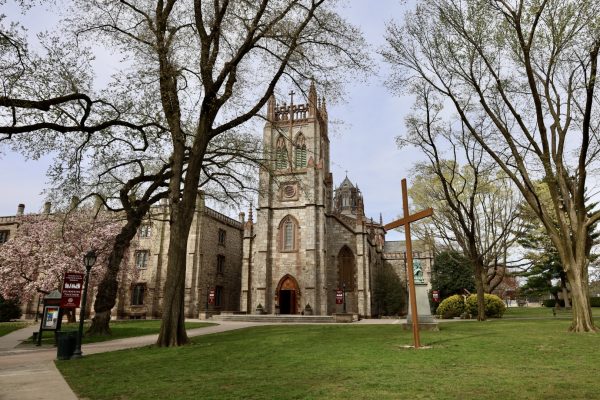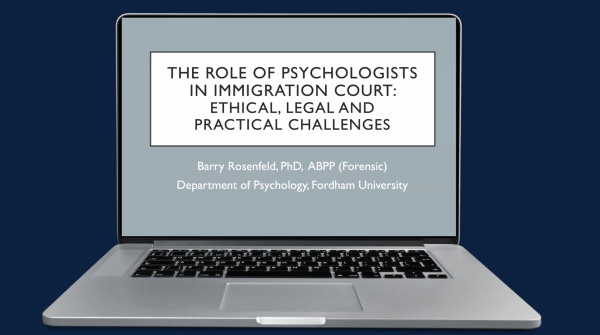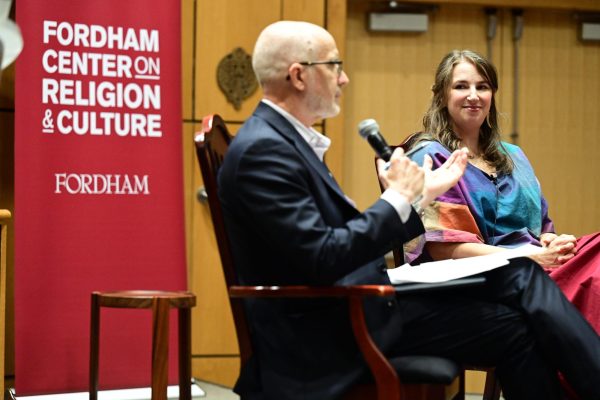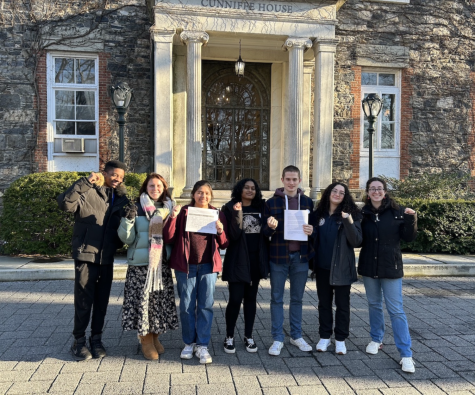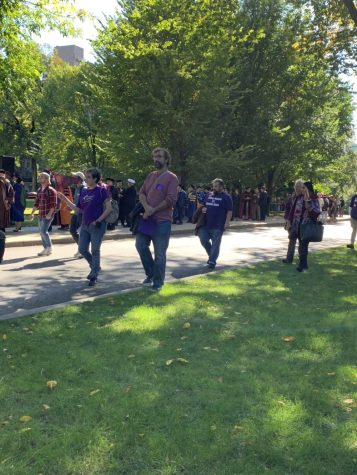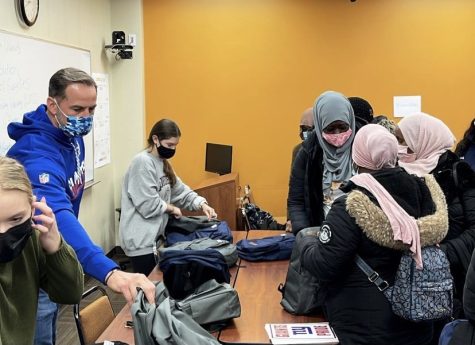Fordham Academic Departments Release Anti-Racism Statements
Following the rise of awareness concerning police brutality and the Black Lives Matter movement brought on by the protests concerning the death of George Floyd, many academic departments of Fordham University released anti-racist manifestos and described anti-racist initiatives in their departments going forward. The administration of Fordham University itself has similarly released an anti-racism action plan.
These departments include but are not limited to the department of African and African American Studies (AAAS), the department of American studies, the department of English and the comparative literature interdisciplinary program.
The AAAS Faculty Statement, released on Aug. 31 2020, can be found on the department’s page on the Fordham website. It expresses the department’s solidarity with the Black Lives Matter movement and those protesting the deaths of George Floyd and Breonna Taylor at the hands of police officers. Furthermore, it supports the Fordham University Action Plan “Addressing Racism, Educating for Justice,” but urges the university to do more to combat injustice.
“We call upon the University to increase funding for African and African American Studies and take steps to expand its faculty and the number of black students on campus, develop partnership with neighboring communities, empower the perspectives of the most marginalized, and address the vulnerabilities that black students face with police and policing culture that affect them on campus,” reads the statement.
The AAAS Faculty Statement also links to another statement published by the African American Intellectual History Society (AAIHS) on June 24, 2020, “A Call to Action to Catholic University Communities,” which demands that Catholic universities take substantial action to help the Black community.
“While we acknowledge that several of our university presidents have issued public statements condemning police violence and the killing of George Floyd and Breonna Taylor, as well as the white vigilantism that claimed the life of Ahmaud Arbery, we also believe that statements are not enough,” reads the statement. “Statements and apologies without clear plans for transformation and accountability are empty. Worse, such incomplete approaches exacerbate conditions long in need of remedy. Catholic institutions, while guided by principles of faith, wield significant symbolic, political, social, and economic power. Academic institutions such as ours have been as complicit in limiting Black potential as any other institution over the past two centuries or longer.”
The statement published by the AAIHS includes, among others, signatories from Fordham University, Boston College, Georgetown University, College of the Holy Cross and University of Notre Dame.
Multiple Fordham University departments have both endorsed the AAAS faculty statement and released statements and planned initiatives of their own.
“The American Studies Program stands firmly with those groups who seek to make the United States and Fordham University more equitable places,” said Christopher Dietrich, director of the department of American studies.
Dietrich explained that the department of American studies included programming related to anti-racism in its Election 2020 Lecture Series, including a lecture on “Criminalization, Inequality, and the Stakes of 2020” by Professor Elizabeth Hinton, an American historian and professor at Yale University.
The English department drafted a statement, approved on Oct. 7, 2020, expressing the department’s commitment to anti-racism and stating that in response to concerns of both past and present students.
The English department has already taken steps, including hosting the Reid Family Writers of Color Reading Series, creating a “Race and Social Justice” requirement for English undergraduate majors and organizing accountability groups for faculty. The department continued by stating that it would take steps to implement resources in order to include diversity of perspective in the department.
Shonni Enelow, co-director of the comparative literature interdisciplinary program at Lincoln Center said that due to the fact that the comparative literature program is an interdisciplinary program and not an academic department, the program’s curriculum largely stems from other departments, and all faculty are a part of other departments with different statements.
The program sent out an inclusivity policy that focused on the importance of justice, equality and global diversity in an education in comparative literature. It also sent out a list of resources for students including resources for accessibility, mental health, food and housing insecurity and help with citizenship and visas.
Enelow explained the importance of sending the list of resources to students.
“Since most of these resources require students to use their own initiative, we were especially concerned to encourage and support students who might suspect, for reasons of institutional bias, that these resources are not for them. We see this as an inclusivity project,” she said.
Furthermore, she said that the program is currently planning an event celebrating Asian American studies at Fordham for fall 2021, and has “prioritized funding for faculty initiatives that improve equity and inclusion, with particular emphasis on anti-racism, and introduced a new policy whereby every event we host includes a plan for outreach to diverse communities at Fordham and best accessibility and inclusivity practices.”
Maria Farland, co-director of the department of women, gender and sexuality studies at Rose Hill, said that the department board would be meeting in November in order to discuss anti-racist initiatives for the next spring.
The department of urban studies posted a statement on the page for a master of arts in urban studies on the Fordham website. The statement includes a quote from “Ella’s Song,” a tribute to Ella Baker, a prominent African American activist in the civil rights movement.
“Until the killing of black men, black mothers’ sons, becomes as important to the rest of the country as the killing of a white mother’s son, we who believe in freedom cannot rest,” reads the statement.
The statement provides a link to Father McShane’s statement on the death of George Floyd.
“Racial injustice and racism are and have been obvious focal points of our program, and the research and teaching of our faculty members,” said Annika Hinze, director of the urban studies program. “We find it crucially important to acknowledge that racism and racist microaggressions still permeate many of our institutions. We want to continue trying to find ways to address this, and to question our own words and actions, in the classroom and beyond.”
In June, the now-former chair of the department of psychology, Barry Rosenfield, as well as the current chair of the department of psychology, Tiffany Yip, sent out a statement over email to students and faculty within the department. The statement expressed its support of the protests following the death of George Floyd as well as its students and faculty. Additionally, the department is currently in the process of forming the department’s first Diversity, Equity and Inclusion Advisory Council including staff, faculty, current students and alumni.
“It is my firm hope that these collective efforts move us closer to an equitable and just institution,” said Yip.

Hasna Ceran is a junior double majoring in economics and Middle East studies. She began by writing the USG Column for Volume 101 and served as an Assistant...





































































































































































































